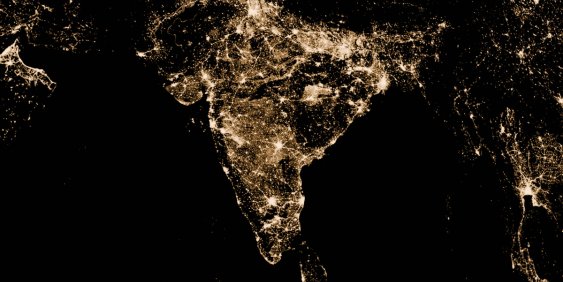
What can we learn from India, the world’s fastest growing economy?

2024 IOD LEADERSHIP CONFERENCE OUTTAKE
Day two of the 2024 IoD Leadership Conference was kickstarted by Dr Reuben Abraham, the CEO of Artha Global, a policy and research organisation based in Mumbai and London.
Dr Abraham appeared as a keynote speaker with assistance from the Asia New Zealand Foundation Te Whītau Tūhono.
India has been the world’s fastest-growing major economy in the past two years. It is on track to retain number one position next year, as urbanisation and industrialisation processes reach the swift take-off phase. It’s now the world’s fifth largest economy, is predicted to be the third largest in five years and could be second only to China in economic size by 2050.
Dr Abraham outlined just what this means for New Zealand, and what we can learn from India’s rapid economic growth. He encouraged New Zealand business leaders to adopt new perspectives and strategies to thrive in a rapidly changing global economy and had some practical advice for New Zealand businesses looking to engage with India’s expanding economy.
Some key points from his session include:
-
- Shift focus from trade deals to action: Dr Abraham advised New Zealand businesses to stop waiting for a formal trade deal with India and to start engaging directly in business activities. He argued that trade deals are not necessary for conducting business and pointed out that India does not have free trade agreements with many of its major trading partners, such as the US, UK, EU, Germany or China.
- Leverage India’s growth: Dr Abraham highlighted India’s significant economic growth and its potential to become the world’s third-largest economy within five years. He urged New Zealand to capitalise on this growth by exploring sectors beyond dairy exporting, as India is the world’s largest dairy producer. This included the education and tourism sectors, where he considered there was ample opportunity for growth if we get better at promoting “Brand New Zealand”. He notes New Zealand only gets a fraction of the Indian tourists that go to Australia (70,000 v 385,000), and nearly 400,000 Indian tourists who go to Switzerland each year. Those who come here are among the highest-spending tourists – we’re just missing out on volume, but this could be changed. There is a huge education demand from India, because of its extremely competitive tier 1 university entrance requirements. Many high-quality students are able to afford tertiary study overseas. Dr Abraham considered New Zealand may be missing out to other English-speaking counties such as Australia, Canada, the UK and the US, and saw this as a growth area. He emphasised the longer-term benefits of personal relationship building between NZ and India, through Indian citizens completing tertiary study in New Zealand – reflecting on his own strong US connections because of studying there. India’s stock market is now the fourth largest in the world (and rapidly growing) and could be a source of capital and foreign investment in New Zealand.
-
- Technological and financial reforms: Dr Abraham pointed out inefficiencies in New Zealand’s financial systems, such as high transaction fees, and suggested adopting models from India, Brazil, Estonia and other countries. They have implemented low-friction, low-fee digital infrastructure. He stressed that reducing these barriers would benefit consumers and small businesses in New Zealand by enabling more cost-effective participation in digital finance. Dr Abraham emphasised the significant impact on India’s economic growth of its Unified Payments Interface (UPI) system, which has revolutionised digital transactions, making them faster and more accessible. Characterised by its real-time, seamless and fee-free transactions, the UPI system contrasts sharply with New Zealand’s current high banking system surcharges and transaction fees. Dr Abraham urged New Zealand to consider adopting the same open, inter-operable digital public infrastructure principles and systems that India has.
- Digital revolution drivers: India’s digital transformation has been a remarkable journey, driven by a combination of government initiatives, technological advancements, and widespread adoption of digital services. Its transformation is dynamic and ongoing, with continuous efforts made to bridge the digital divide and ensure that the benefits of digitalisation reach all segments of society. Dr Abraham noted that India has deliberately reduced the cost of smartphones, as well as call costs – going from the having among the highest call cost rates in the world, to the cheapest. The widespread availability of affordable smartphones has played a crucial role in increasing internet access.
- Building a clear national vision: Dr Abraham stressed the importance of New Zealand defining its global aspirations clearly. He has often asked himself, what does New Zealand really want? Drawing a comparison with Singapore, he noted that, despite similar population size, Singapore has managed to achieve double the GDP of New Zealand. He asked, “how is that possible, when the island state doesn’t have any resources.” The answer is through clear strategic planning and execution.
Dr Reuben Abraham is the CEO of Artha Global, a policy and research organisation based in Mumbai and London. He’s a noted expert on India’s economic development and is currently a Senior Fellow at New York University’s Marron Institute, an Asia Fellow at the Milken Institute in Singapore, and an Honorary Advisor to the Asia New Zealand Foundation.
Want to hear more and get insights like these? Keep an eye out for updates on the IoD’s 2025 Annual Leadership Conference– more information coming soon.


